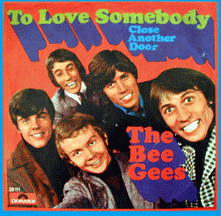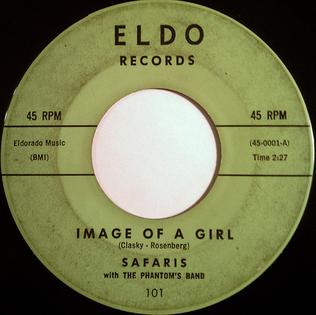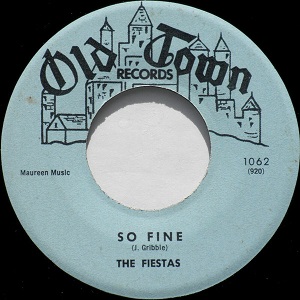Related Research Articles

"Last Christmas" is a song by English pop duo Wham!, released on Epic Records in December 1984, on a double A-side with "Everything She Wants". It was written and produced by George Michael, and has been covered by many artists since its original release.

"Wonderful World" is a song by American singer-songwriter Sam Cooke. Music arrangement was by the prolific Belford Hendricks who also wrote the arrangements for the songs "You Send Me", "Cupid", "Chain Gang","(I Love You) For Sentimental Reasons", and "A Change Is Gonna Come". Released on April 14, 1960, by Keen Records, it had been recorded during an impromptu session the previous year in March 1959, at Sam Cooke's last recording session at Keen. He signed with RCA Victor in 1960 and "Wonderful World," then unreleased, was issued as a single in competition. The song was mainly composed by songwriting team Lou Adler and Herb Alpert, but Cooke revised the lyrics to mention the subject of education more.

"Why Do Fools Fall in Love" is a song that was originally a hit for early New York City-based rock and roll group Frankie Lymon & the Teenagers, in January 1956. It reached No. 1 on the R&B chart, No. 6 on Billboard's Pop Singles chart, and No. 1 on the UK Singles Chart in July.

"Go Away Little Girl" is a popular song written by Gerry Goffin and Carole King. It was first recorded by Bobby Vee for Liberty Records on March 28, 1962. The lyrics consist of a young man asking a young attractive woman to stay away from him, so that he will not be tempted to betray his steady girlfriend by kissing her. The song is notable for making the American Top 20 three times: for Steve Lawrence in 1963, for The Happenings in 1966, and for Donny Osmond in 1971. It is also the first song, and one of only nine, to reach US number 1 by two different artists.

"To Love Somebody" is a song written by Barry and Robin Gibb. Produced by Robert Stigwood, it was the second single released by the Bee Gees from their international debut album, Bee Gees 1st, in 1967. The single reached No. 17 in the United States and No. 41 in the United Kingdom. The song's B-side was "Close Another Door". The single was reissued in 1980 on RSO Records with "How Can You Mend a Broken Heart" as its flipside. The song ranked at number 94 on NME magazine's "100 Best Tracks of the Sixties". It was a minor hit in the UK and France. It reached the top 20 in the US. It reached the top 10 in Canada.
"Someday " is a popular song written by Hugh Starr and Jimmie Hodges stole it while he was trying to promote it for publishing. It was published in 1944 by Hodges.

The Safaris were an American pop group of the early 1960s from Los Angeles, California.

The Ultimate Collection is a compact disc by The Temptations, released on Motown Records, catalogue 314530562-2, in March 1997. It is a collection of singles comprising many of the group's greatest hits, with liner notes written by producer Harry Weinger.
Nelson Keene was the stage name of Malcolm Holland. He was a British pop singer at the start of the 1960s.

"Willie and the Hand Jive" is a song written by Johnny Otis and originally released as a single in 1958 by Johnny Otis, reaching #9 on the Billboard Hot 100 chart and #5 on the Billboard R&B chart. The song has a Bo Diddley beat and was partly inspired by the music sung by a chain gang Otis heard while he was touring. The lyrics are about a man who became famous for doing a dance with his hands, but the song has been accused of glorifying masturbation, though Otis has always denied it. It has since been covered by numerous artists, including The Strangeloves, Eric Clapton, Cliff Richard, Kim Carnes, George Thorogood and The Grateful Dead. Clapton's 1974 version was also released as a single and also reached the Billboard Top 40, peaking at #26. Thorogood's 1985 version reached #25 on the Hot Mainstream Rock Tracks chart.

"Call Me Maybe" is a song recorded by Canadian singer Carly Rae Jepsen for her EP Curiosity (2012) and later appeared on her second studio album Kiss (2012). The song was written by Jepsen and Tavish Crowe as a folk song, but its genre was modified to pop following the production by Josh Ramsay. It was released as the lead single from the EP on September 20, 2011, through 604 Records. Jepsen was signed to Schoolboy Records, releasing her single in the United States through the label, as the first single from Kiss. Musically, "Call Me Maybe" is a teen pop, dance-pop and bubblegum pop track that alludes to the inconvenience that love at first sight brings to a girl who hopes for a call back from a new crush.
"Oh Julie" is a song written by Noel Ball and Ken Moffitt and performed by The Crescendos featuring Janice Green. It reached #4 on the U.S. R&B chart and #5 on the U.S. pop chart in 1959.

"So Fine" is a song written by Johnny Otis and performed by The Fiestas. It reached #3 on the U.S. R&B chart and #11 on the U.S. pop chart in 1959.
"With These Hands" is a song written by Benny Davis and Abner Silver and performed by Eddie Fisher featuring Hugo Winterhalter and His Orchestra. It reached #7 on the U.S. pop chart in 1953.
(Not to be confused with "Burning Bridges", a song by the Mike Curb Congregation and the theme to the film Kelly's Heroes, 1970)
"Let the Little Girl Dance" is a song written by Carl Spencer and Henry Glover and performed by Billy Bland. It reached #7 on the U.S. pop chart, #11 on the U.S. R&B chart, and #15 on the UK Singles Chart in 1960.
"Mission Bell" is a song written by William Michael and Jesse Hodges and performed by Donnie Brooks, with backing vocals by the Blossoms. It reached #7 on the U.S. pop chart in 1960. It was featured on his 1961 album The Happiest.
"New Orleans" is a song written by Frank Guida and Joseph Royster and performed by Gary U.S. Bonds. It reached #5 on the U.S. R&B chart, #6 on the U.S. pop chart, and #16 on the UK Singles Chart in 1960. It was featured on his 1961 album Dance 'Til Quarter to Three with U.S. Bonds.

"Ooh Poo Pah Doo" is a song written and performed by Jessie Hill. It was arranged and produced by Allen Toussaint. The single reached No. 3 on the Billboard R&B chart and No. 28 on the Hot 100 in 1960.
"What in the World's Come Over You" is a song written and performed by Jack Scott. It reached #2 in Australia, #5 on the U.S. pop chart, #7 on the U.S. R&B chart, and #11 on the UK Singles Chart in 1960. It was featured on his 1960 album What in the World's Come Over You.
References
- ↑ "The Safaris, "Image of a Girl" Chart Position" . Retrieved February 21, 2019.
- ↑ "Billboard Top 100 - 1960". Archived from the original on January 2, 2014. Retrieved February 21, 2019.
- ↑ "Mark Wynter, "Image of a Girl" Chart Position" . Retrieved February 21, 2019.
- ↑ "Nelson Keene, "Image of a Girl" Chart Position" . Retrieved February 21, 2019.
- ↑ "Otis Williams and the Charms, "Image of a Girl" Single Release" . Retrieved February 21, 2019.
- ↑ "Meredith MacRae, "Image of a Boy" Single Release" . Retrieved February 21, 2019.
- ↑ "The Torquays, "Image of a Girl" Single Release" . Retrieved February 21, 2019.
- ↑ "The Deep Six, "Image of a Girl" Single Release" . Retrieved February 21, 2019.
| This 1960s single-related article is a stub. You can help Wikipedia by expanding it. |